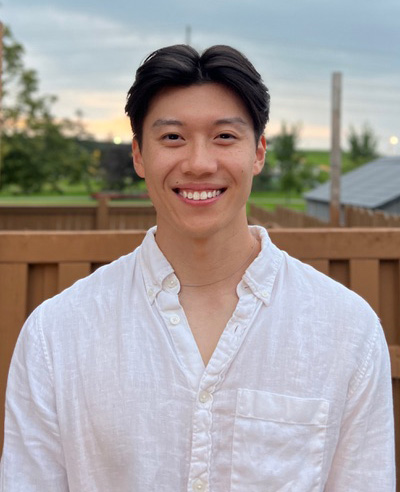1. Welcome back to the TBCRU, can you remind our readers who you are and tell us a little about yourself?
My name is Natasha Knier. I am in the second year of my M.Sc. in Medical Biophysics at Western University, working under the supervision of Dr. Paula Foster at the Robarts Research Institute. Previously, I completed my undergraduate degree at the University of Waterloo in the Honours Health Studies Co-op program.
2. As a senior researcher, why is the TBCRU Studentship Award important to you, how does it allow you to advance your research?
I am incredibly thankful for the continuous support of the TBCRU, and the Breast Cancer Society of Canada provides through the studentship award. The funding from this award allows me to fully immerse myself in my research and has allowed me to give back to the community through fundraisers, knowledge sharing, and collaboration with other trainees, patients, and donors.
3. In a few lines, can you remind us what you are doing and what problems you hope to solve with your research?
My research focuses on studying how breast cancer spreads to the brain (metastasis) using breast cancer patient models. Using these models, we hope to learn more about breast cancer metastasis to the brain by combining non-invasive magnetic resonance imaging (MRI) techniques and bioluminescence imaging (BLI) to gain insight on how this disease spreads over time. Our future work hopes to answer more questions about why breast cancer can recur after remission, using the same imaging technology to study dormant cancer cells.
4. Since we last spoke, have there been any changes or any advancement in your research?
My first manuscript related to breast cancer imaging has been submitted to an academic journal (the preprint is available here). Preliminary data from my work on imaging a patient-specific model of breast cancer has also been collected, and I hope to present this work at future conferences.
5. Have you had an opportunity to present your research to your peer researchers? Was it at a national or international meeting or in some other way?
I am grateful to have had several opportunities to present at both national and international meetings, including the International Society of Magnetic Resonance Imaging (ISMRM) conference in Montreal, Quebec, and at the Future of Molecular MR Workshop in St. John’s, Newfoundland. More local conferences I have presented at include London Health Research Day, Oncology Day, and the Imaging Network Ontario conference.
6. Did that presentation setting help you share your breast cancer research with the broader scientific community?
Absolutely! Presenting at conferences is an excellent way to share research with professionals who have a wide range of expertise and may provide insight on how to progress your work.
7. Did any of the feedback or conversations that came about from presenting your research, help you and your research in any way?
The feedback and discussions that come from presenting my work have allowed me to consider future collaborations, different approaches and how we can improve our research.
8. Now that you have had some more time with your research, how do you think your research will be applied in a real-world situation?
We believe our research of breast cancer metastasis to the brain can provide insight that reflects what is seen in real patients more accurately than past methods. While there are still many important questions to be answered in this field, this work is a crucial step towards improving personalized medicine and developing better treatment for those with breast cancer.
9. Tell us about your involvement in the Breast Cancer Society of Canada fundraising events (Dress for the Cause, Mother’s Day Walk)?
Every year, TBCRU trainees at Western University work together to hold a Dress for the Cause bake sale. In 2019, I was a co-organizer of the Bake Sale, and I had a significant role in planning, marketing, and executing the event. We were able to raise over $500 with the help of bakers in the research community and from generous donations of those who attended. You can read more about it here!
10. What about your participation in other Breast Cancer Society of Canada donor events or tours, how has that impacted your perspective on breast cancer research?
Last fall, I was able to share my research on the Weather Network, which provided me with the opportunity to promote fundraising events and to reach an audience of community members, patients, and BCSC donors. This involvement has genuinely helped me understand the impact of my work and how important it is to share the progress that’s made possible through generous donations and fundraisers across the country.
11. What are you currently reading, watching or listening to outside of the lab?
Typically, I love watching anything comedy, from Netflix stand-up comedy specials to classic sitcoms like The Office and Friends. Right now, I’m working my way through all of the Marvel Cinematic Universe movies!
Support researchers like Natasha Knier by considering a donation to the Breast Cancer Society of Canada. Find out how you can help fund life-saving research, visit bcsc.ca/donate today.




